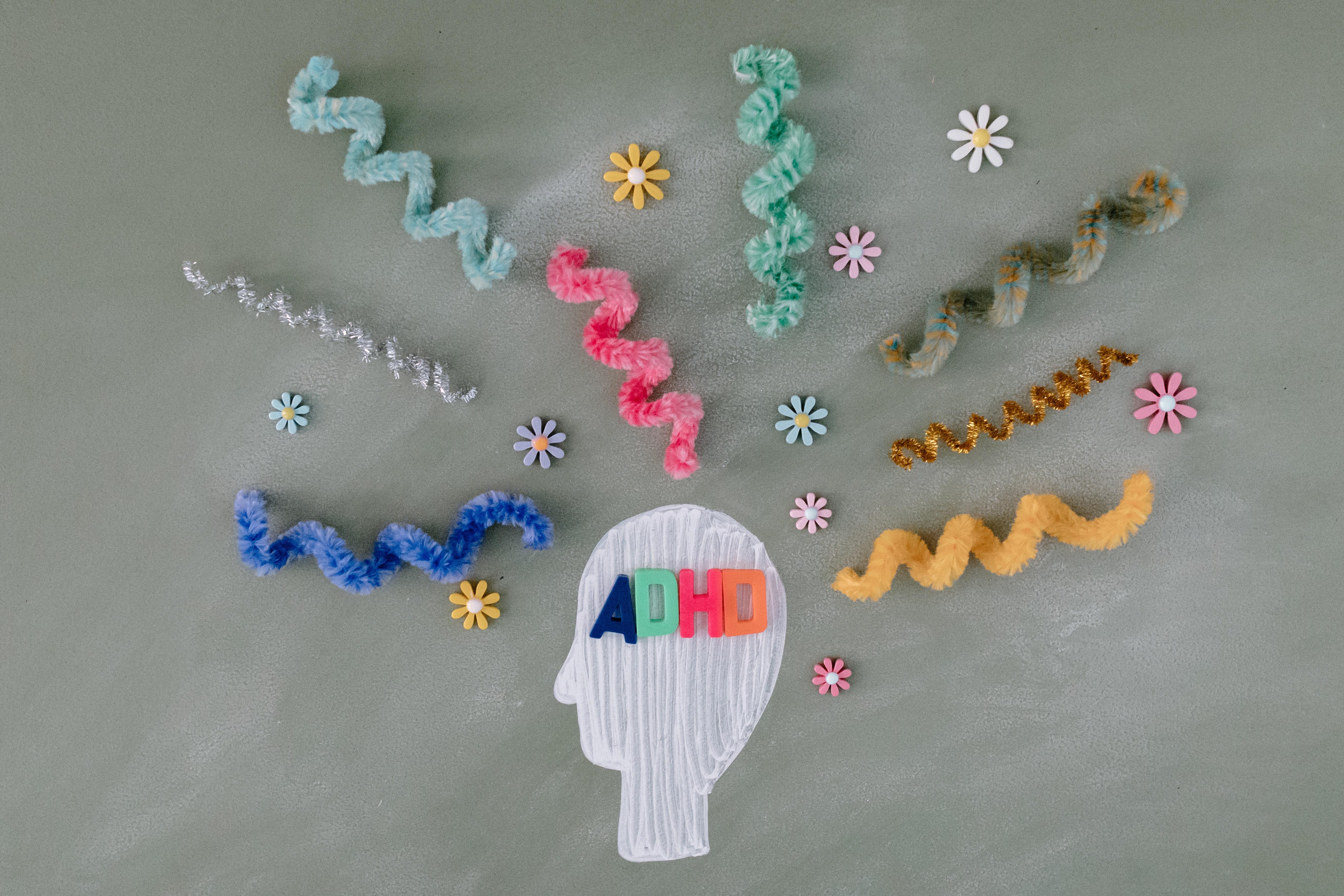Since people with ADHD often have a lot to worry about, between 25 and 40 percent of them also suffer from an anxiety problems. People with ADHD frequently experience time loss, unintentional insult, or hyperfocus on a small concern. Are you feeling stuck with ADHD?
Here’s what you can do. Studying a problem gives a proper understanding of what to do or what not to. So today, we will educate you on what exactly ADHD is.
What Is ADHD?
The abbreviation of ADHD is “Attention Deficit Hyperactivity disorder”. One of the most prevalent neurodevelopmental diseases in children is ADHD. It frequently persists in adults and is typically first diagnosed in childhood. Children with ADHD may struggle to focus, manage impulsive behaviors (doing without considering the consequences), or be extremely active.
Worry Vs Anxiety
Let’s differentiate between anxiety and worry. An object of worry is anything that one worries about. Anxiety typically has no obvious source or direction and is free-floating. Both are unpleasant, but because the sufferer can’t pinpoint the source, anxiety could be worse.
What Does ADHD Feel Like
A person with an attention deficit has a lot to worry about. ADHD frequently sends a person in the wrong direction, down dead ends, or on worthless adventures. It makes one lose track of time and, all of a sudden, in a panic, complete tasks that would normally take a week in an hour. ADHD frequently causes people to speak incorrectly or unintentionally make offensive or deceptive statements. In other words, ADHD may ruin a good day, a good week, a good month, and a good life by causing missed opportunities and dashed hopes. Throughout his life, a person with ADHD struggles greatly to find calm, harmony, or serenity.
ADHD Stuck In A Loop
Overthinking is a term that you are undoubtedly familiar with if you have ADHD. It happens when your mind wanders and you keep thinking the same things over and over again without getting any better or coming to a satisfactory conclusion. Your thoughts could become mired in present-day concerns or hypothetical scenarios.
What Is ADHD Paralysis?
The overwhelm-shutdown process that can occur when you have ADHD is referred known as ADHD paralysis.
You could “freeze” as a stress response if too many things are happening or too many emotions are building up. Anyone can feel overwhelmed; but, if you have ADHD, your brain circuitry may make these sensations more likely to occur.
You can assist prevent ADHD paralysis in the future by breaking things down, highlighting your successes, and making them enjoyable.
ADHD Paralysis Vs Depression
It is true that the symptoms of ADHD frequently mirror and overlap with those of other illnesses like depression, anxiety, and bipolar disorder, which can result in misdiagnosis but also insufficient treatment when undiagnosed conditions are present.
Symptoms included in ADHD
It includes having trouble setting priorities, concentrating, or controlling impulsive behaviors.
Symptoms included in Depression
It comprises thoughts of self-hatred, remorse, and worthlessness. In addition to social seclusion, depression frequently manifests as insomnia.
Knowing the key differences between depression and ADHD paralysis makes it simple to recognize your condition and choose the right treatment.
ADHD Freeze Response
‘Shutdowns’, in which a person is so overcome with emotions that they zone out, may find it difficult to speak or move, and may fail to describe what they are feeling until they can process their emotions, might result from emotional differences in people with ADHD. The name of this condition is “ADHD freeze response.”
Can ADHD make You Feel Disconnected?
ADHD sufferers may become overly sensitive and overwhelmed by all of the activity around them. They may also come across as being incredibly indifferent, icy, or blissfully unaware of other people’s sentiments. They can come out as aloof or narcissistic when they detach, whether it’s from a lack of focus or being overloaded.
What Happens When ADHD Goes Undiagnosed
Adults with ADHD who are unaware of it are much more likely than the general population to experience serious issues. When ADHD is undiagnosed, mood disorders, severe melancholy, and anxiety frequently happen. Even if these illnesses are treated, the underlying issue will only worsen if it is not treated.
Poor Sleep During ADHD
Sleep issues affect 25 to 55 percent of children with ADHD, and 43 percent of adults with ADHD experience the same issue. ADHD can make it difficult for you to fall asleep quickly and can also make you wake up frequently during the night, which can have an impact on both the quality and amount of your sleep.
You can’t think as clearly when you’re tired as you can when your sleep is disturbed. According to studies, people with ADHD and sleep issues are more likely to mistakes in school work due to inattention, exhaustion, and daytime sleepiness challenges with language, cognition, and information processing
Sleep issues and ADHD have a complicated relationship. Having ADHD makes it more difficult to get enough rest. Additionally, your ADHD symptoms can worsen if you don’t get enough sleep. It’s important to treat both problems because this trend leads to a cyclical situation.
Tips To Make ADHD Under Control

Developing powerful behavioral coping mechanisms can give you the ability to manage your ADHD symptoms immediately. Here are five strategies you can apply every day.
Get organized
A fresh organization strategy could be required if you frequently spend your day attempting to figure out where to begin yet accomplish very little by the time dinner comes around. You may effectively manage your time and activities with organization, which helps you avoid distractions and potential stress throughout the day.
Make a routine
Once you’re comfortable planning your day, create a general pattern that will ensure that your day goes without a hitch no matter what may come up. Become accustomed to placing your keys in the entry tray as soon as you enter through the front door. Before entering the living room to sit on the couch, hang up your jacket in the closet. Develop routines that work for you by analyzing your behavioral patterns.
Avoid distractions
Minimizing distractions can help you maintain your focus for longer periods of time when you have personal or professional tasks that call for a higher level of concentration. Your living environment should be decluttered and made simpler to reduce distractions and increase attention.
Simplicity is beneficial at work as well. Finish current work before beginning new ones to increase concentration.
Run errands during free time
It could be good to put work aside and go for a little jog or walk if you’re feeling fidgety and finding it difficult to concentrate on the task at hand.
Find music that makes you more productive
When you listen to music with lyrics, it’s difficult to concentrate on what you’re doing and you end yourself just singing along. You learned that while lyrics-based music is enjoyable, it doesn’t aid in concentration.
Instead, you can listen to music without lyrics when you’re at work or need to concentrate on something other than spontaneous karaoke.
it has made a huge difference. If you want to feel like “I’m conquering the world from my office desk,” you can play sweeping classical music while staying focused.
The Ending Note
While having first-hand knowledge of what ADHD actually is? Before it’s too late, you should set aside some time to engage in the therapy of this disease. We don’t want you to keep having regrets.
FAQs
Can ADHD make you feel stuck?
Being stuck is common; it does happen. It’s a universal truth. But becoming stuck happens frequently for those with ADHD, and it can be challenging to break out of it.
Is rumination a symptom of ADHD?
Your ADHD brain may occasionally be doing nothing more than seeking excitement. Therefore, the ruminating might just be brain candy. In those situations, if you can divert your attention for a sufficient period of time using your faulty memory, you may be able to stop the never-ending cycle of thought.
How do I get my ADHD life back on track?
Setting and achieving goals will help you feel better about yourself. According to certain studies, physical activity may stimulate brain regions linked to ADHD.
How do I get out of the ADHD Task paralysis?
You can help prevent ADHD paralysis in the future by breaking things down, highlighting your achievements, and making them enjoyable.
What does severe ADHD look like?
Adults with ADHD may struggle to prioritize and concentrate, which can result in missed deadlines, canceled meetings, and neglected social activities. The inability to restrain impulses can cause a variety of behaviors, such as impatience while driving in traffic or in line, as well as mood swings and angry outbursts.
How do you deal with ADHD burnout?
Along with fatigue, you can experience difficulty controlling your emotions, worry, sensory problems, a sense of low self-worth, poor impulse control, or a heightened sensitivity to rejection. With it all comes a profound feeling of complete and utter fatigue.
Does caffeine help ADHD?
According to several types of research, caffeine can help ADHD sufferers focus better. It replicates some of the effects of higher stimulants used to treat ADHD, like amphetamine drugs, because it is a stimulant substance. Caffeine is effective, although not as much as prescription drugs.
How do I stop being stuck with ADHD?
“Executive dysfunction” is something that people with ADHD suffer. This can have an impact on our capacity to start tasks, prioritize them, and continue working toward our goals, which explains why we feel so stuck and afflicted by indecision.

